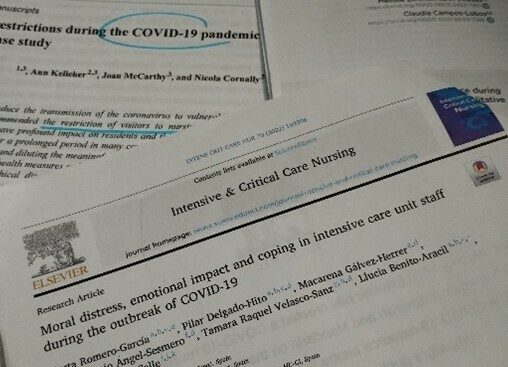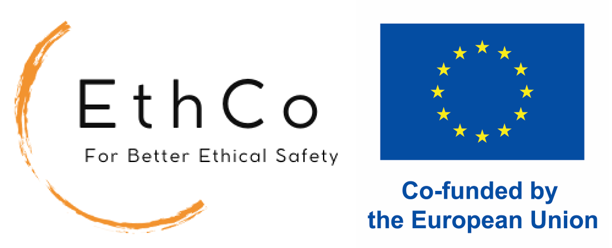Yes! We have found something already

The EthCo (For better safety in future health care environments)-project which started in October 2022 aims to address ethical challenges in nursing and physiotherapy. The first step includes an integrative literature review. The review’s objective is to identify the challenges in ethics education in the fields of nursing and physiotherapy over the recent years. The literature review team utilised various databases to identify specific ethical challenges, which will inform the development of a theoretical framework for this project and educational materials for healthcare professionals. Following this process, the next phase of data collection through survey will commence with associated partners in the EU.
The literature review highlighted several ethical dilemmas that were commonly found in areas relating to both hospital- and community health care settings. Nurses faced ethical dilemmas such as refusal of hospital admission, uncertainty of how to deal with family rudeness, child´s death, workplace violence, providing care for patients who resemble friends or family, responsibility for too many patients, emotional or psychological abuse, physical violence and professional or personal conflict.
This literature review suggests interventions to address these ethical issues such as establishing ethical guidance, continuing ethics education, supporting profession-specific mental health and job satisfaction, prevent burnout, conflict and job dissatisfaction, create models for coordinated, professionally respectful and collaborative team-oriented interventions, co-operation between physicians, co-workers and patient´s family members, self-talking and physician-nurse communication.
The main themes highlighted from the review of the literature are:
- Safeguarding against unethical practice
- Well-being at the workplace free from physical or psychological violence
- Developing the ethical competence of healthcare professionals
- Understand and provide high quality ethical care
The second part of the review looked at effective learning strategies for ethics. Overall, there is minimal evidence regarding education and skills related to online fatigue. However, from the identified literature, online education has positive learning outcomes and is an effective learning tool to improve the ethical competence of nurses through decision-making and critical thinking. However, there is no significant difference in learning outcomes between synchronous and asynchronous classes. The review further attempted to identify literature in relation to online fatigue and burnout. The concept of “zoom fatigue” is a potential challenge for online education. This concept might affect mobility, positive role models, energy levels, social interactions and dissatisfaction with communication. Furthermore, synchronous online learning is even more challenging for learners than asynchronous activities. Synchronous online learning is associated with higher fatigue, depressive and burnout tendencies. Finally, active participations of students should be considered in this regard , and education may be combined with clinical activities.
In conclusion, continuing professional education is esstential in the development of ethical competecies in nursing and physiotherapy. The project aims to address the ethical dilemmas healthcare professionals face by identiying the ethical challenges in practice through this literature review. Moreover identifying effective ethics strategies such as active learning and discussion, that will inform the educational materials. Ultimately prioritising patient safety serves as a pivotal factor in ensuring ethical safety in healthcare environments.
Authors:
Agita Melbārde-Kelmere, Rīga Stradiņš University
Nina Rantalaiho, Turku University of Applied Sciences
